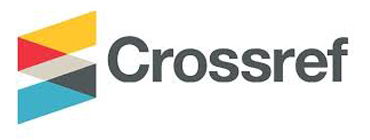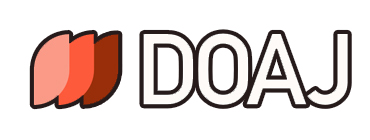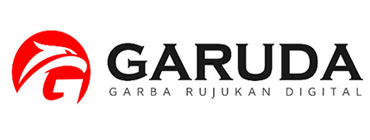EFFECTIVE COMPETENCY BASED SCHOOL MODEL
Abstract
Full Text:
PDFReferences
Bedi, A., and Garg, A. The effectiveness of private versus public schools: the case of Indonesia. Journal of Development Economics, 61(2), 2000, Pp 463-94
Colquitt, LePine, et al (2009). Organizational Behavior. Harper and Row : New York.
Creemers, Bert P.M. Primary Education Quality Improvement Project (PWQIP). Indonesian Quartely. Vol 2, 1999, Pp 1-7
Creswell, J.W. (2014). Research Design: Pendekatan Kuantitatif, Kualitatif dan Mixed. Edisi Ketiga. Pustaka Pelajar. Yogyakarta.
Daly, AJ dan Chrispeel, A. From Problem to Possibility : Leadership for Implementing and Deepening the Processes of Effective Schools. Journal Effective Schools.Vol 4 No.1. 2005, Pp 26-35
Hardjosoedarmo, Soewarso. (2004). Total Quality Management.Andi : Yogyakarta.
Hargreaves, D.H. A Capital Theory of School Effectiveness and Improvement.British Educational Research Journal, Vol. 27, No. 4, 2001. Pp 487-503
Hawley, W.D and Rolly, D.L. The Keys to Effective Schools: Educational Reform as Comtinuos Improvement. Corwin Press and NEA. California.2007. Pp 122-128
Hoy, W.K dan Miskel, C.G. (2014). Administrasi Pendidikan: Teori, Riset dan Praktik. Pustaka Pelajar. Jogjakarta.
Lazotte, L.W. Effective Schools : Past, Present, and Future. Journal for Effective Schools. Vol 10 No.1.2011, Pp 1-8
Manopo, Christine (2010). Competency Based Talent and Performance Management System. Salemba Empat : Jakarta.
Mulyasa, E. (2002). Manajemen Berbasis Sekolah: Konsep, Strategi dan Implementasi. Remaja Rosda Karya. Jakarta.
Riduwan dan Kuncoro, E.A. (2011).Cara Menggunakan Dan Memakai Path Analysis.Alfabeta. Bandung.
Robbin, S.P (1994) Organisasi: Teori dan Praktik. Erlangga, Jakarta
Robbins, Stephen dan Coulter, Marry (2007).Manajemen.Erlangga. Jakarta
Sagala, Saiful.(2007). Manajemen Strategik dalam Peningkatan Mutu Pendidikan. Jakarta : Alfabeta
Steers, R. M. (1980). Efektivitas Organisasi. Erlangga. Jakarta.
Schereens, J. (2000). Improving Schools Effective. Terjemahan CV. Logos Wahana Ilmu. Tangerang.
Spencer, L.M, and Spencer, S.M. (1993). Competence at Work: Model for Superior Performance. Wiley. New York.
Townsend, Tony. (1994). Effective Scholling for the Community.London and New York.Routledge.
DOI: http://dx.doi.org/10.30829/tar.v27i1.684
Refbacks
- There are currently no refbacks.

Jurnal Tarbiyah by UIN Sumatera Utara Medan is licensed under a Creative Commons Attribution-NonCommercial-ShareAlike 4.0 International License.
Based on a work at http://jurnaltarbiyah.uinsu.ac.id/index.php/tarbiyah.
Permissions beyond the scope of this license may be available at http://jurnaltarbiyah.uinsu.ac.id/index.php/tarbiyah/about/submissions#copyrightNotice.
















